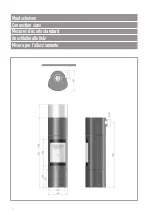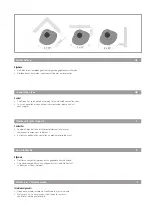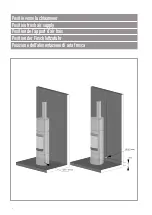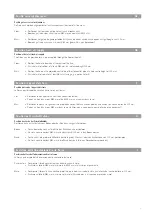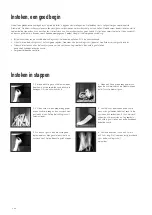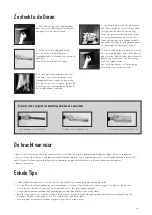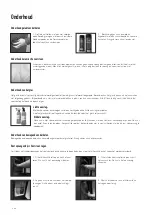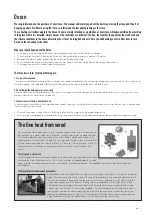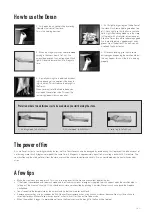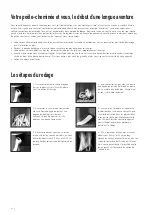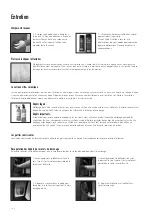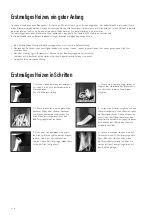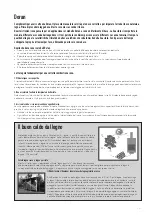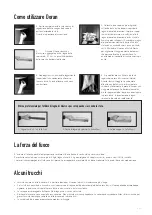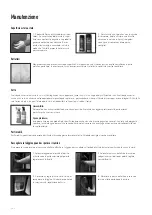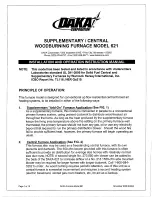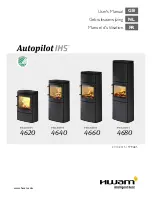
22
GB
Maintenance
Maintenance enamelled parts
Maintenance ceramic firebricks
Maintenance glass
Dust the Doran using a non-fibrous cloth.
Clean with lean soapsuds if necessary. Rinse
thoroughly and heat the Doran so that mois-
ture in cracks and slits can evaporate.
Light moisture:
Use paper towel and then remove the light moisture using a damp cloth.
Counter pressure a little at the outside so that the windowpanel does not move.
1. Lift the heat shield a little and pull it
towards the front. You can then take it out
easily.
3. Put a newspaper on the bottom of the
stove to collect the soot. Close the door and
the air-control slide.
Moving and squeaking parts can be lubricated using graphite grease. Ask your supplier for advice.
You need not worry about any cracks in the ceramic firebrick elements as long as the flame does not come into direct
contact with the metal behind them. Should this be the case, however, then it will be necessary to replace the brick;
contact your supplier.
Damaged spots can be touched up using an
abrasive cloth and the special stove paint.
Ask you supplier for advice.
Thicker deposits:
These can be treated with special fireplace-glass cleaner (this can also be done with a piece of moist paper towel and
white ash). Allow a moment for this to have its effect. Always make sure that these agents do not come into contact with
the enamel in order to prevent stains from being formed.
2. Lift the steel deflector a little and push it
towards the back. You can then take it out
easily.
4. After sweeping, place the deflector and
heat shield back in their positions.
The glass is steamed up when burning wet fuel or too little oxygen is supplied. Also, the glass may steam up if the fire does not start fiercely enough.
This happens, for instance, when you start with small logs instead of thin kindling wood. Moisture will then remain in the fireplace for too long, and
will settle on the coldest part: the glass.
Maintenance moving parts
Collecting soot when sweeping the chimney
The heat shield and deflector must be removed so that the soot will drop on the bottom of the stove during chimney sweeping operations.



